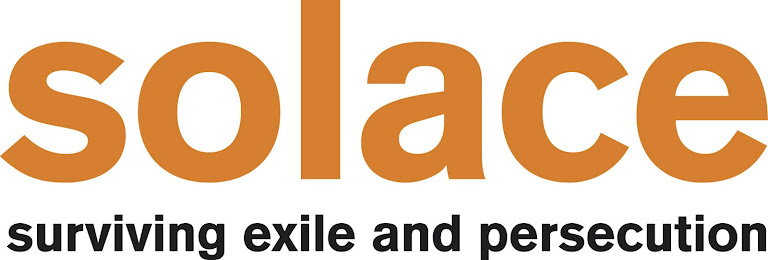My sister was regularly raped and on one occasion, when she was being raped in front of me, I tried to intervene, but I was beaten unconscious by the guards who hit me on my back with their rifle butts.
 I came to Britain in 2005 after escaping from prison where I had been sent with my sister for being involved in a demonstration against the Congolese government, which I helped to organise. My father had been beheaded by government officials for organising the demonstration and I went into hiding with my family, where we feared for our lives. We did not even attend our father’s funeral. A month later, my sister and I were captured by government troops and sent to a dark, stench-ridden dungeon. Every day I was in there, I was beaten with sticks, punched or kicked.
I came to Britain in 2005 after escaping from prison where I had been sent with my sister for being involved in a demonstration against the Congolese government, which I helped to organise. My father had been beheaded by government officials for organising the demonstration and I went into hiding with my family, where we feared for our lives. We did not even attend our father’s funeral. A month later, my sister and I were captured by government troops and sent to a dark, stench-ridden dungeon. Every day I was in there, I was beaten with sticks, punched or kicked. My sister was regularly raped and on one occasion, when she was being raped in front of me, I tried to intervene, but I was beaten unconscious by the guards who hit me on my back with their rifle butts.
An Italian priest helped to release us from prison and he managed to get my sister and me on a plane to England. I still don’t know how he got us out of there.
When we arrived in England, I was in bad shape physically after my experience in captivity. My case for asylum was rejected because the authorities didn’t believe my story. Despite not being able to speak English at the time, I made an appeal against the decision, but on the day of the court hearing I was in hospital, vomiting blood, and suffering from internal bleeding as a result of the torture I had suffered in captivity.
The Judge insisted I went to court, but seeing that I was the worse for wear, he sent me back to hospital. But the Judge also said that if I was going to be in hospital for a lengthy period, the appeal hearing would go ahead without me.
When I was eventually called back to court to make my appeal several weeks later, I was still feeling unwell and I had no legal representation. I asked the Judge for more time to recover but he refused my request. With no knowledge of the English legal system and a poor grasp of English, my appeal was rejected.
The High Court rejected a further appeal by me and I then became a failed asylum seeker with a high risk of being detained or, worse, deported, which would mean almost certain death for me.
My life went from bad to worse. My sister, who as a minor, I had been legally responsible for, ran away. The consequences for me of her running away were dire. As a failed asylum seeker, no longer with any dependants, I was made homeless and penniless. I slept on friends’ floors; hid for four nights in St. George’s Crypt with an Iraqi asylum seeker, without anyone knowing I was there. The alternative was to sleep on the streets.
Eventually, I was provided with a room in a house with other asylum seekers, but I was, and still am, a failed asylum seeker who could be detained or deported at any time. I still do not know where my sister is.
Two years ago, when I was using the Internet in a library in Leeds, I discovered that some soldiers had been to my Mother’s house and had interrogated her and two of my aunts about my whereabouts, but they did not know where I was.
My mother and her two sisters were then raped and brutally murdered. Then the soldiers took my wife and three children away to force me to come out of hiding.
For the last two years, despite extensive enquiries, I have had no news of my wife and three children and I fear the worst.
I was feeling completely depressed and suffering from anxiety. I felt life was not worth living. I desperately needed some help.
Solace really helped me get back on my feet. The therapy helped me be strong again. It was not just the therapist who helped me but all the people working at Solace who gave me a lot of support and very helpful advice. I felt really welcome at Solace by everyone, so much so that I have recommended that friends of mine in the same situation as me come to Solace for help.
I have made a real effort to integrate in Britain. I have learnt to speak English and passed all my English exams; I am actively involved in my local church and involved in many voluntary activities; I am studying an MA in Activism and Social Change at Leeds University. I am not allowed to enrol on the course officially because I am an asylum seeker, but I am happy that I am allowed to be a guest student. I would not be doing any of these things without the help I received from Solace. I cannot underestimate how much Solace has helped me.
I’m still a failed asylum seeker and life is a struggle, sometimes a real struggle. I pray that I will be allowed to stay here, but whatever happens to me, I will always carry the burden of what happened to me and my family in the Congo.
